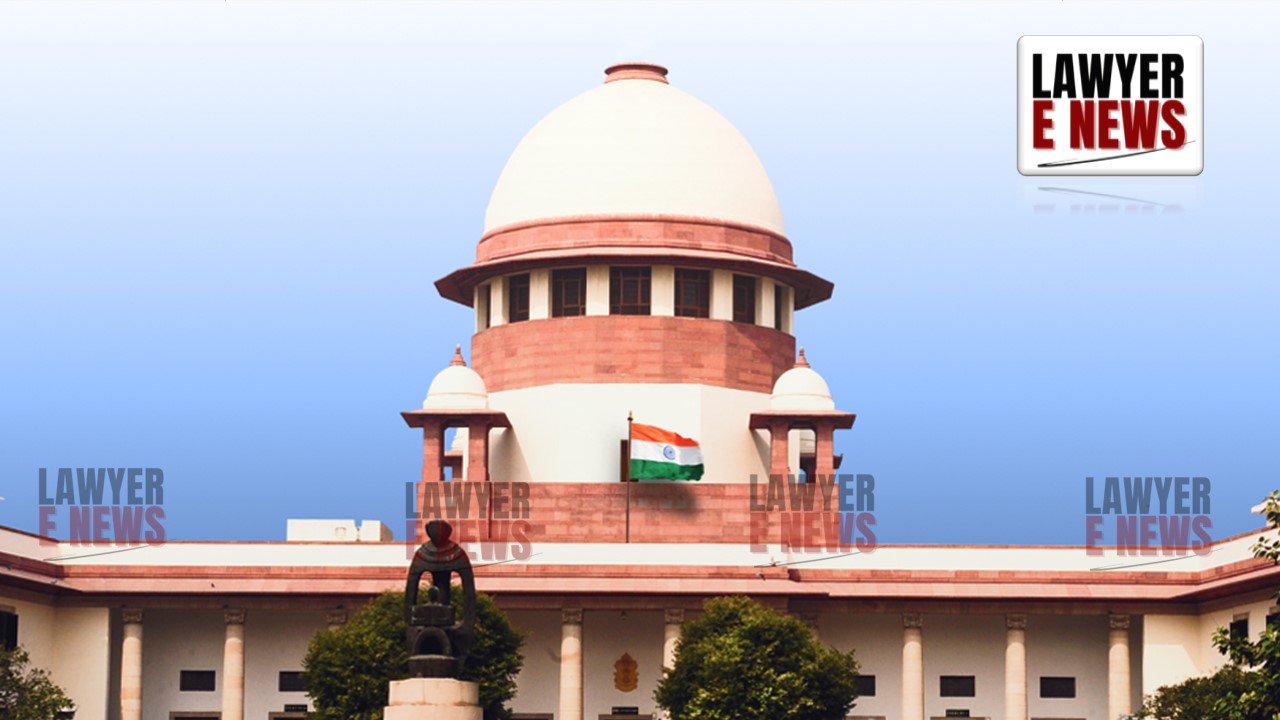-
by Admin
15 February 2026 5:35 AM



Non-Disclosure and Corrupt Practices | Substantial Compliance Over Strict Adherence: Supreme Court on Dismissing Election Petitions Under Order VII Rule 11
On September 2024, the Supreme Court of India delivered a significant ruling in the case of Kimneo Haokip Hangshing vs. Kenn Raikhan & Ors., emphasizing the importance of "substantial compliance" over strict procedural adherence in election petitions. The Court upheld the Manipur High Court's decision to allow an election petition to proceed against an elected MLA, highlighting that a petition should not be dismissed at the threshold merely for not meeting technical requirements if it substantially complies with the statutory provisions of the Representation of the People Act, 1951 (RPA).
The appellant, Kimneo Haokip Hangshing, was elected as a Member of the Legislative Assembly (MLA) from the 46-Saikul Assembly Constituency during the 2022 General Elections in Manipur. The respondent, Kenn Raikhan, who was also a candidate in the same election, filed an election petition before the High Court of Manipur. The petition challenged Hangshing's election on the grounds of nondisclosure of assets and indulging in "corrupt practices." The appellant sought to have this petition dismissed under Order VII Rule 11 of the Code of Civil Procedure, 1908 (CPC), arguing that it did not disclose a cause of action and lacked specific allegations of corrupt practices as required under Section 83 of the RPA.
The crux of the legal issue was whether the election petition filed by the respondent complied with the requirements set out in Section 83 of the RPA. This section mandates that an election petition must include:
A concise statement of material facts.
Detailed particulars of any corrupt practices alleged against the returned candidate.
An affidavit in the prescribed form supporting the allegations of corrupt practices.
The appellant argued that the petition lacked specific allegations and did not fulfill the stringent requirements of Section 83, thus making it liable for rejection at the initial stage under Order VII Rule 11 of the CPC.
Justice Sudhanshu Dhulia, while delivering the judgment, made several key observations:
Material Facts and Cause of Action: The Court noted that the respondent had alleged the appellant failed to disclose investments worth approximately Rs. 2 crores on agricultural land and incorrectly reported zero income for the financial year 2021-22 despite serving as a Committee Officer in the Manipur Legislative Assembly until December 31, 2021. These allegations were sufficient to disclose a cause of action and warranted a trial to determine their veracity.
Section 83 and Its Compliance: The Court reiterated that an election petition must contain a concise statement of material facts and details of any corrupt practices, as per Section 83(1) of the RPA. However, strict adherence to these requirements was not necessary as long as there was "substantial compliance." The Court found that the respondent's petition had met this threshold, providing enough material to proceed with the trial.
Precedents on Substantial Compliance: Referring to previous rulings such as G.M. Siddeshwar v. Prasanna Kumar (2013) and Thangjam Arunkumar v. Yumkham Erabot Singh (2023), the Supreme Court underscored that an election petition should not be dismissed solely on technical grounds if it substantially complies with the statutory provisions. This "substantial compliance" is crucial for allowing the merits of the case to be examined during a trial.
Affidavit Requirement: The judgment discussed the necessity of an affidavit under Section 83(1)(c) in Form 25 of the Conduct of Election Rules, 1961, and noted that while the exact form and content were important, the absence of this requirement would not automatically invalidate an election petition if there was otherwise substantial compliance.
The Supreme Court concluded that the election petition filed by Kenn Raikhan disclosed a cause of action and had substantially complied with the requirements under the RPA. Therefore, it was not liable to be dismissed at the threshold under Order VII Rule 11 of the CPC. By dismissing the appeal, the Court underscored the principle that the pursuit of substantial justice should not be impeded by mere procedural technicalities.
Date of Decision: September 13, 2024
Kimneo Haokip Hangshing vs. Kenn Raikhan & Ors.
